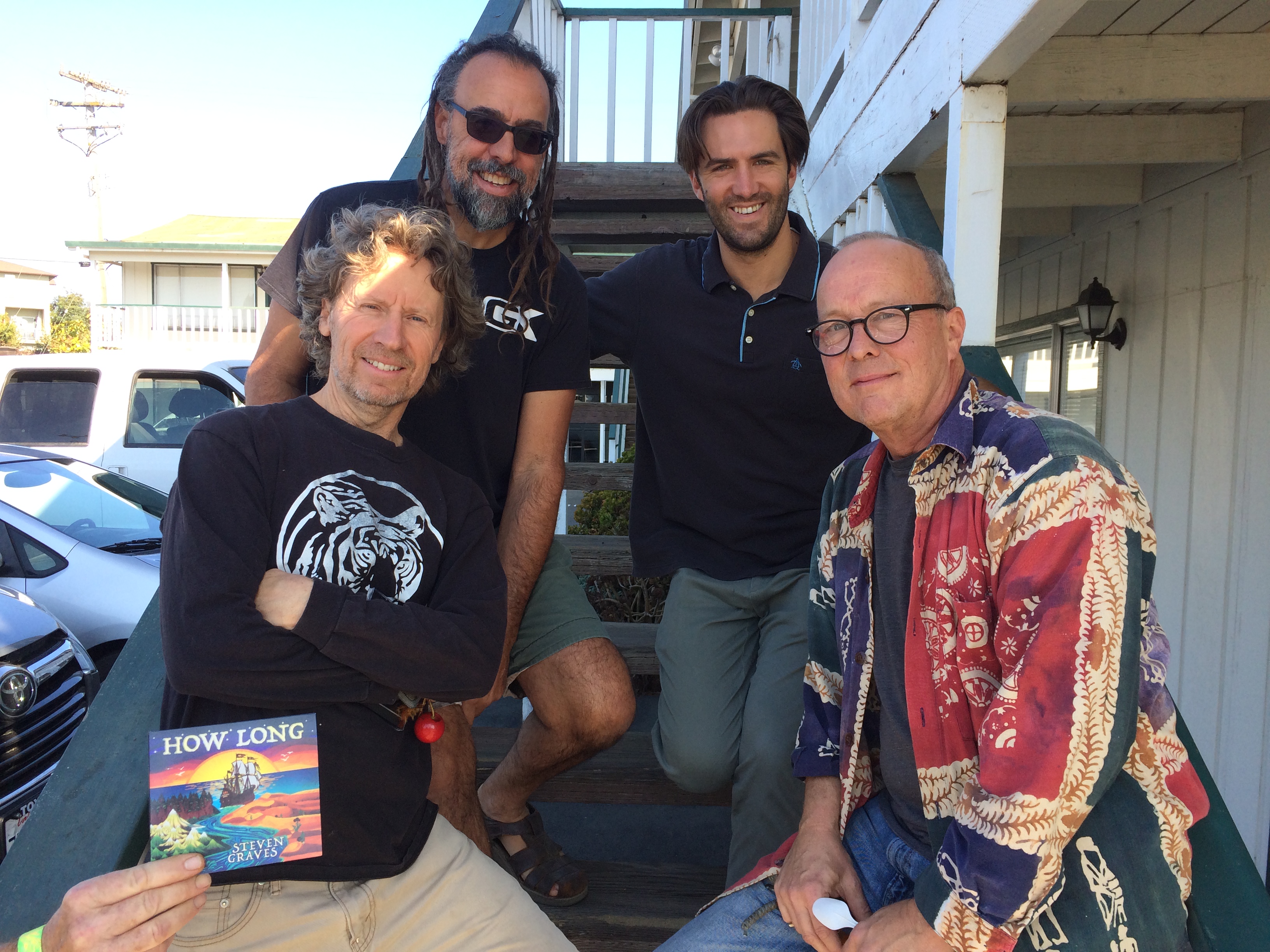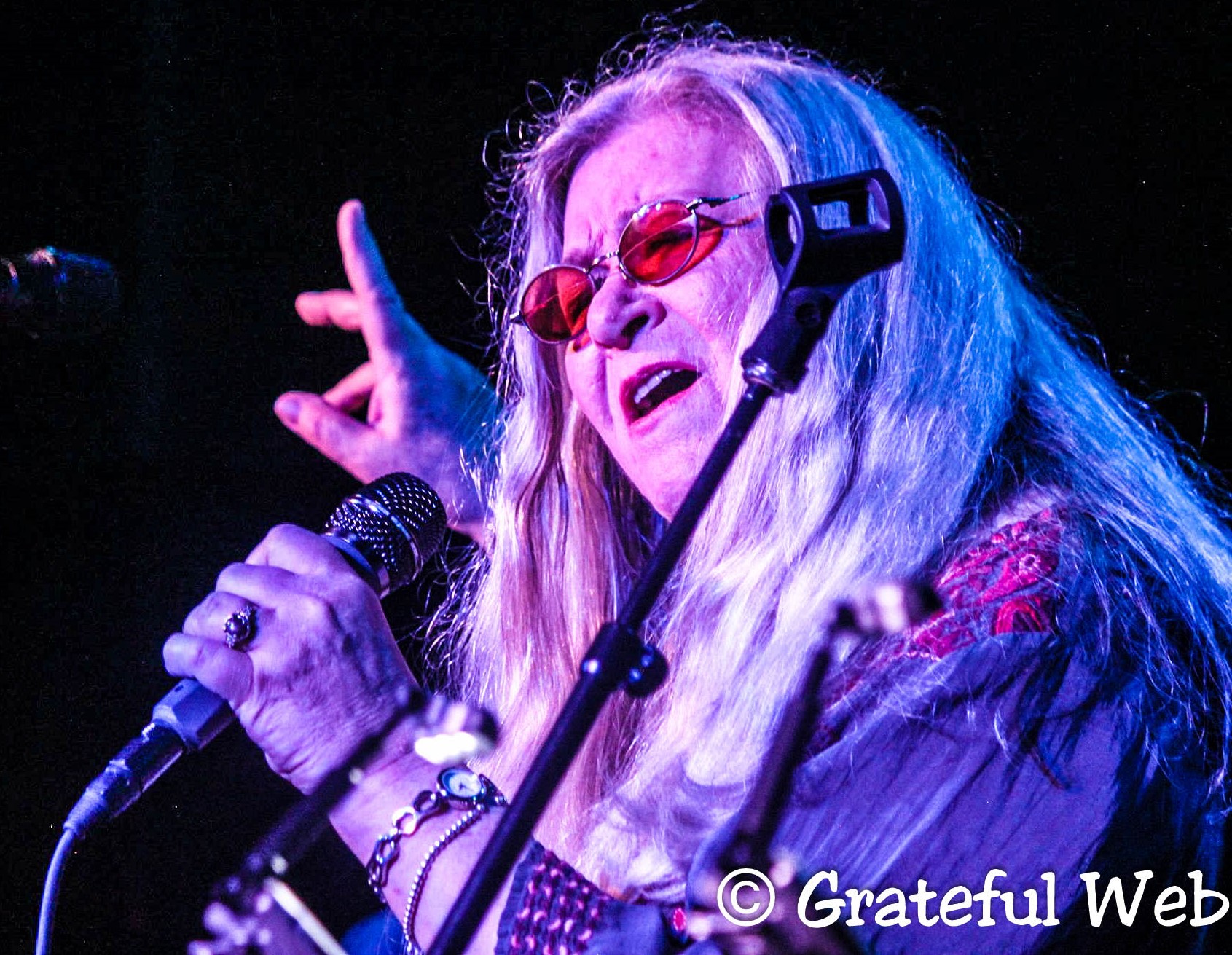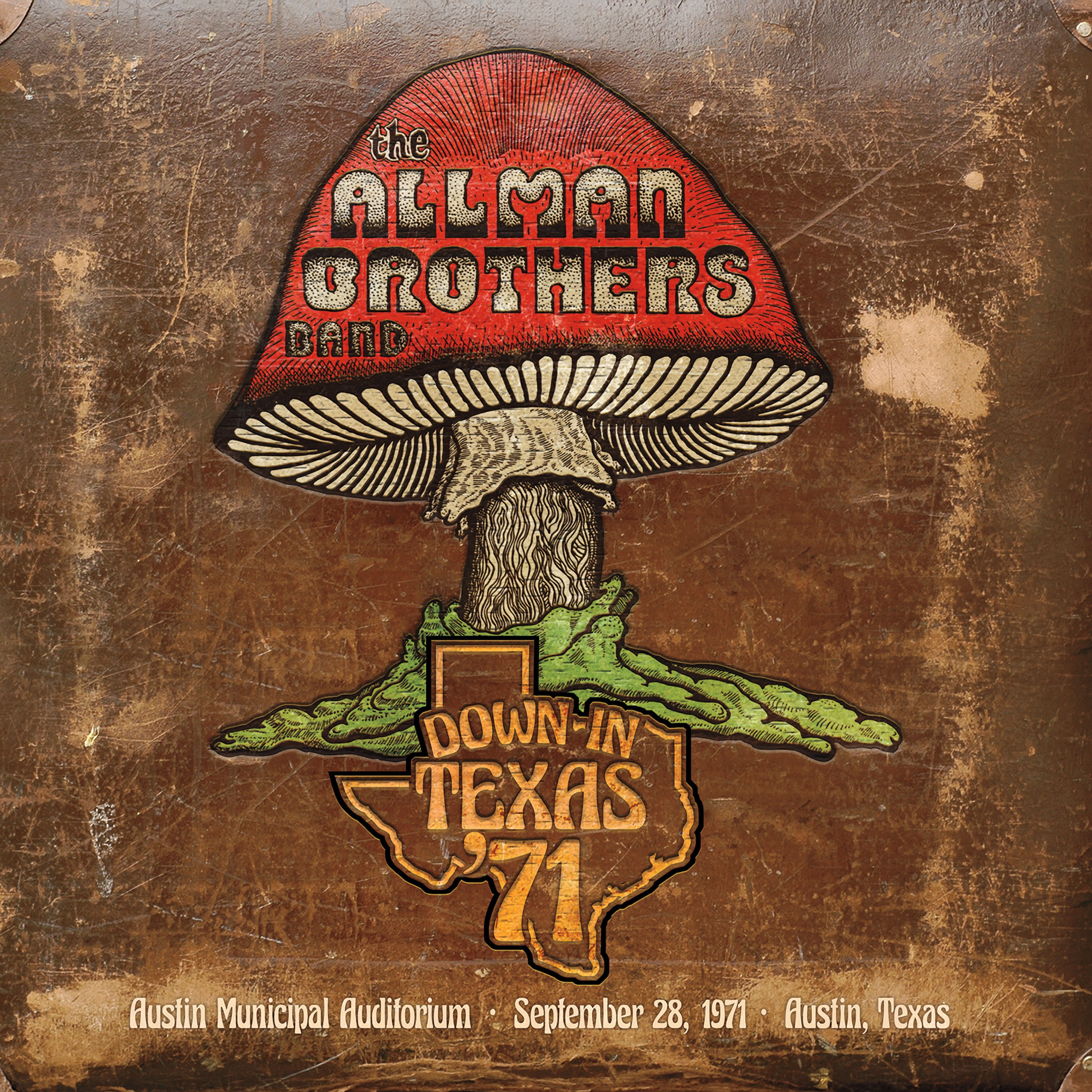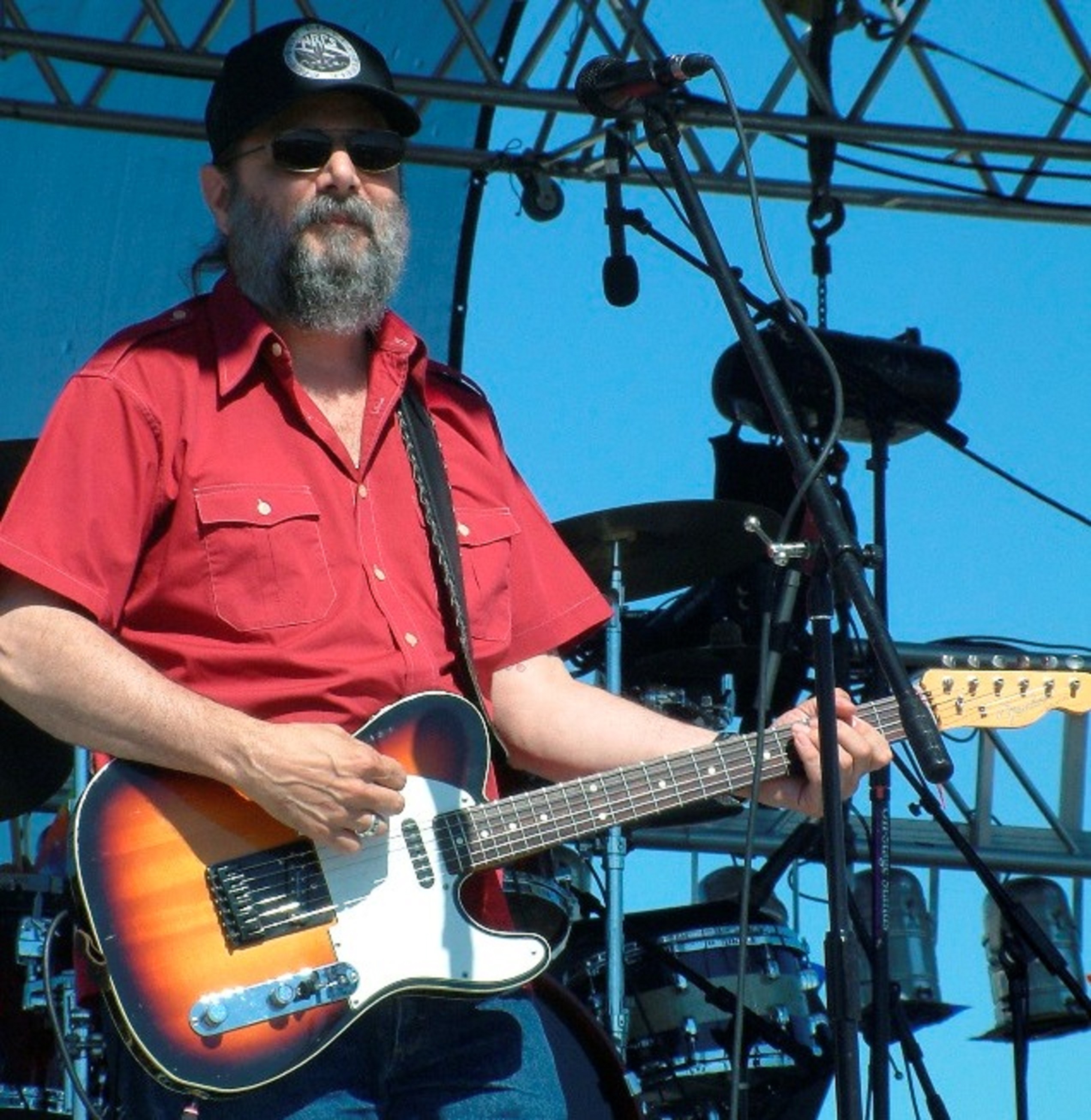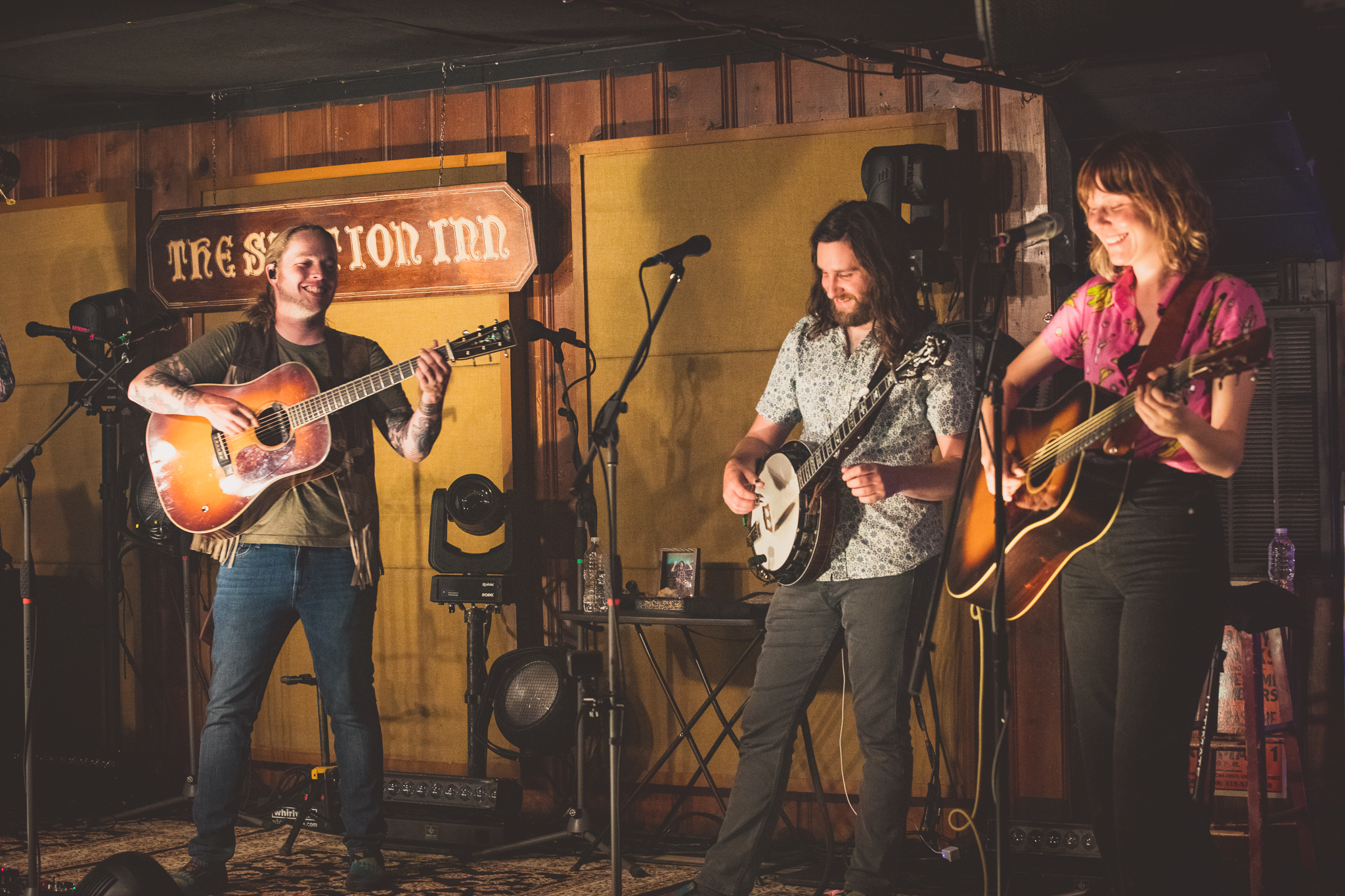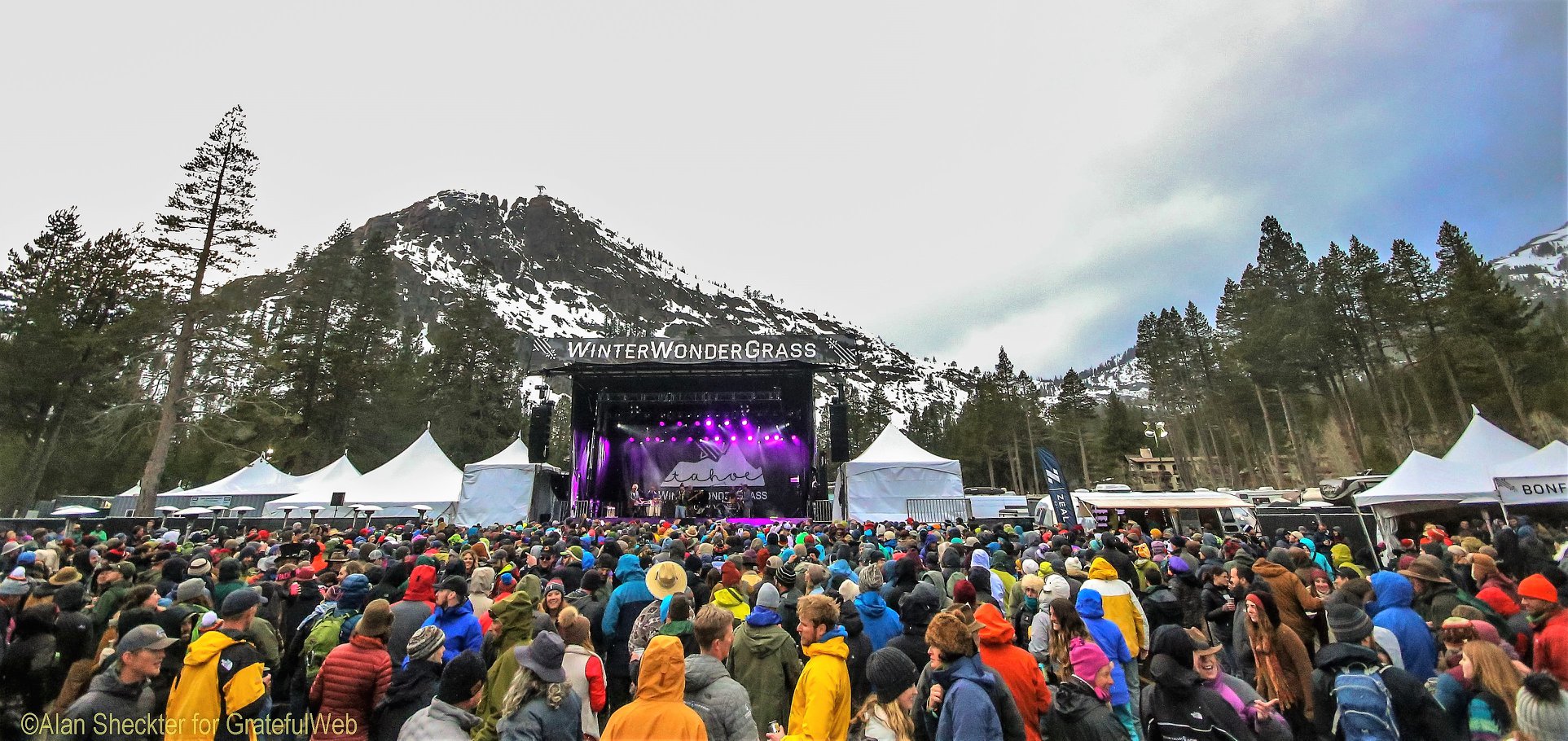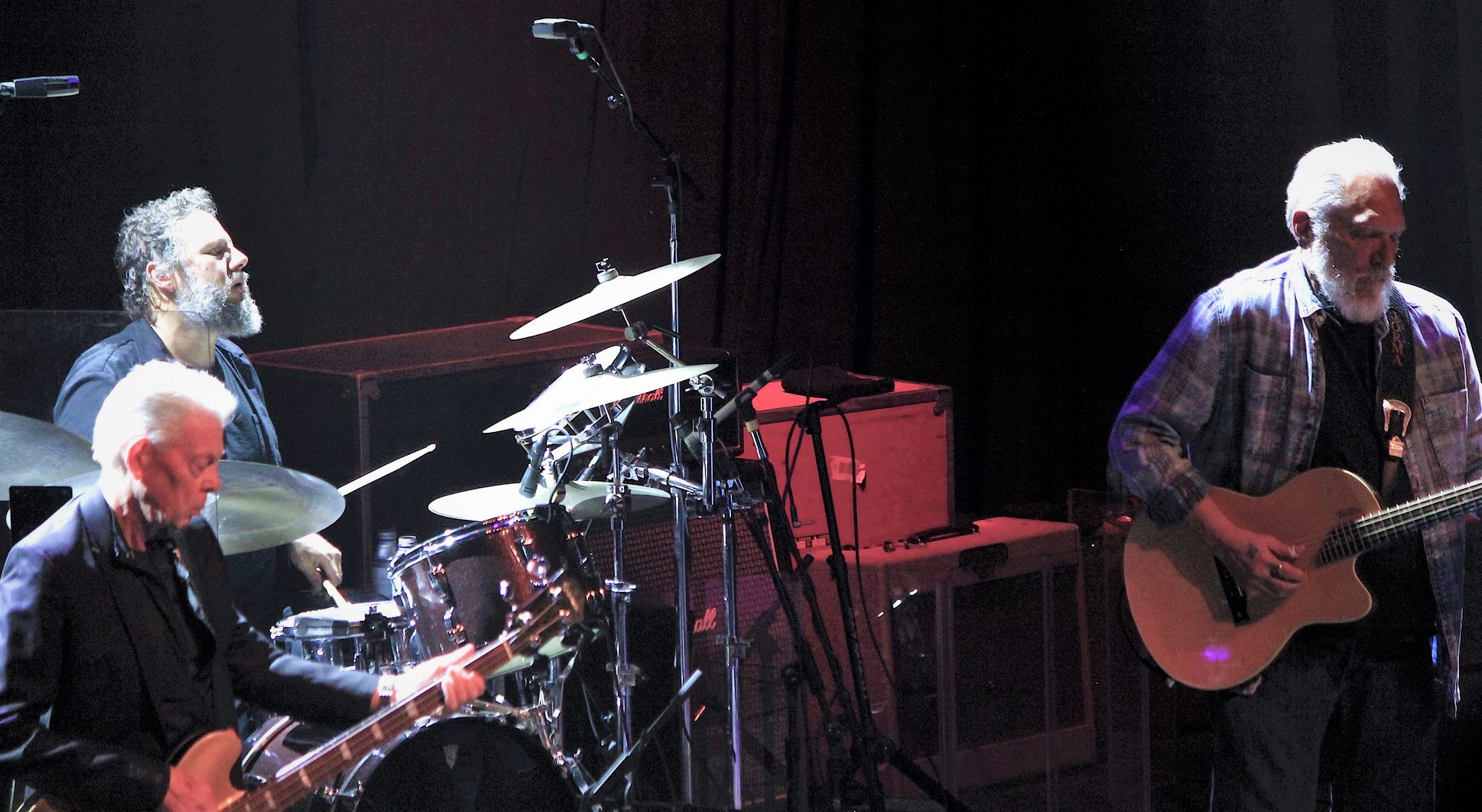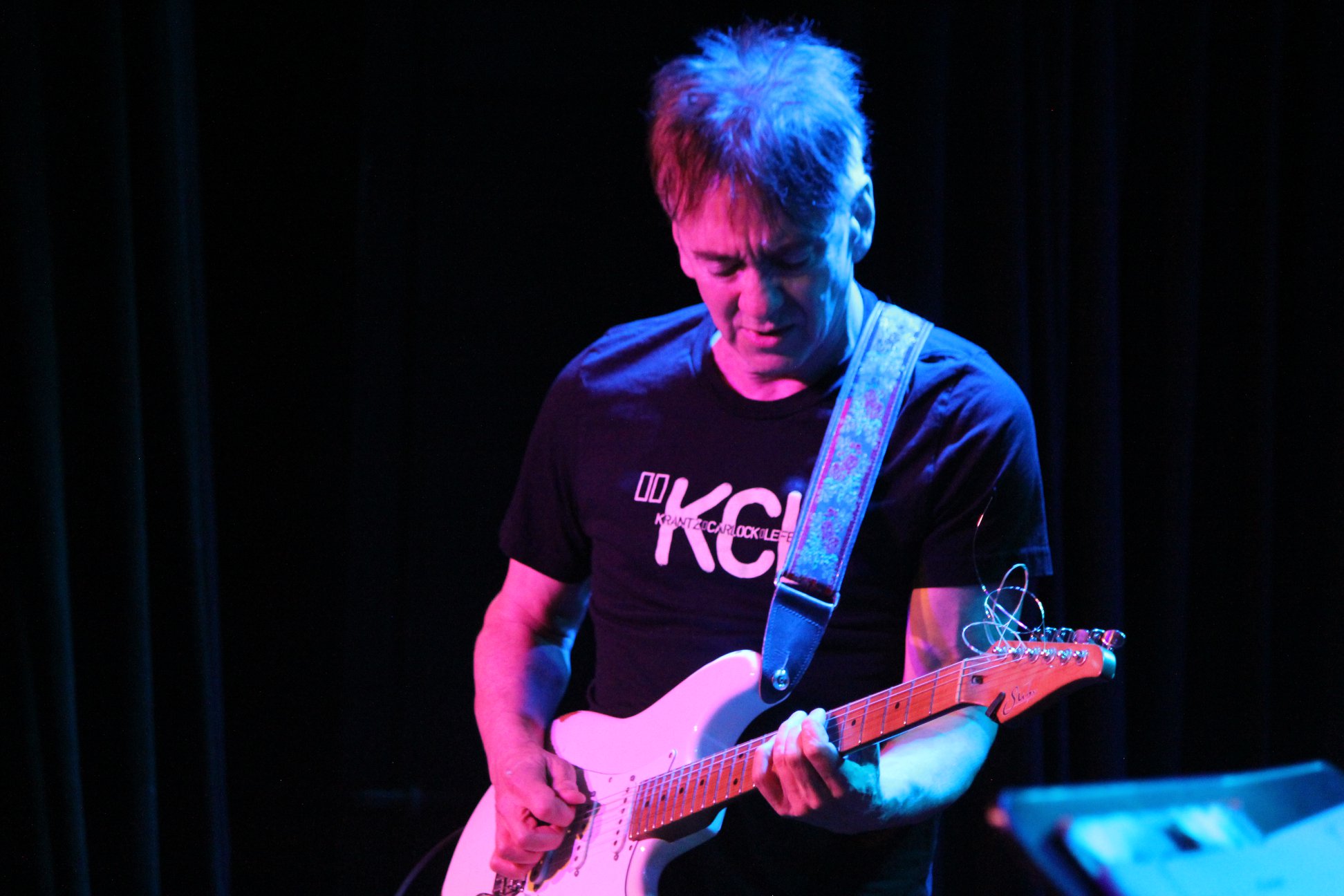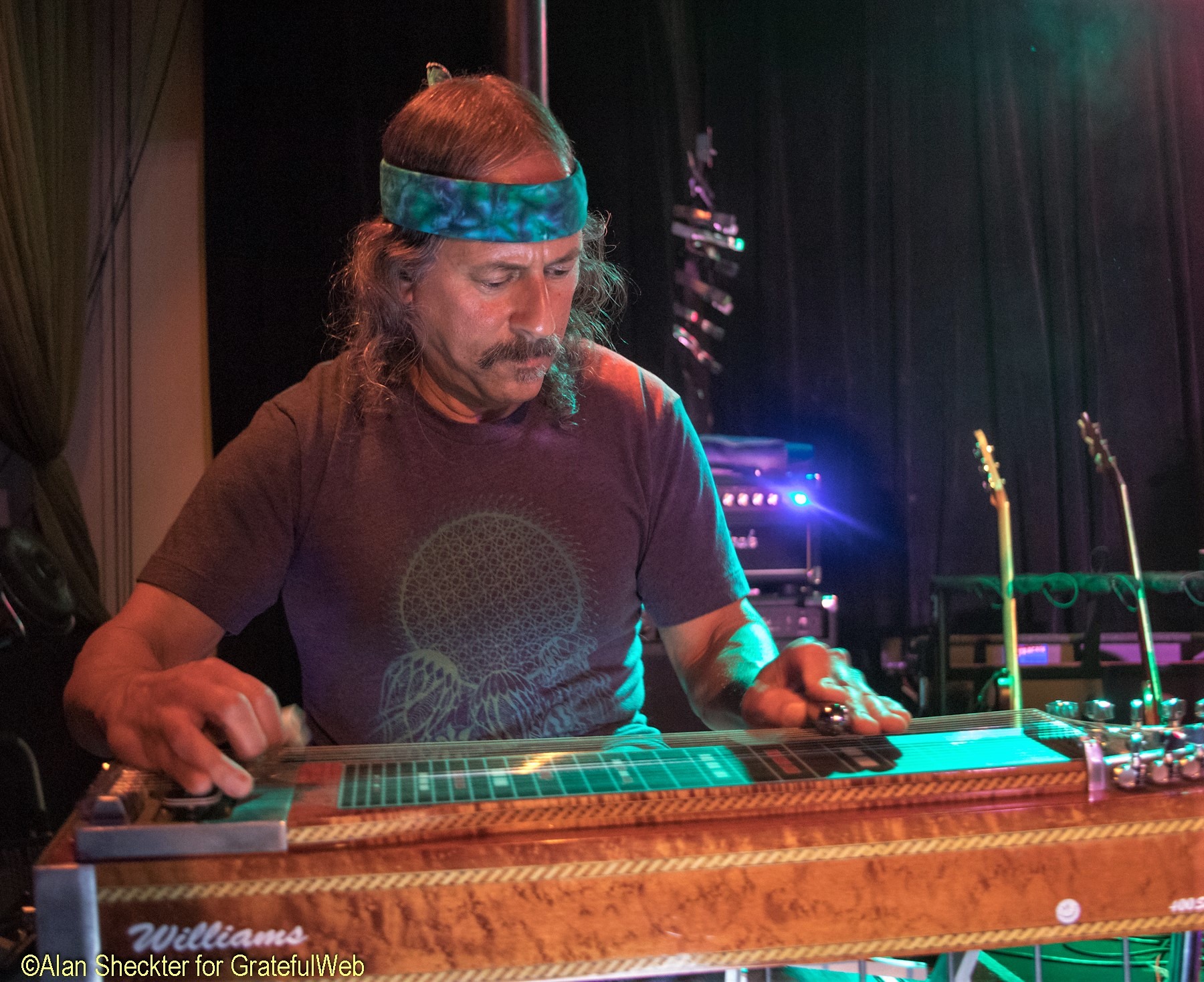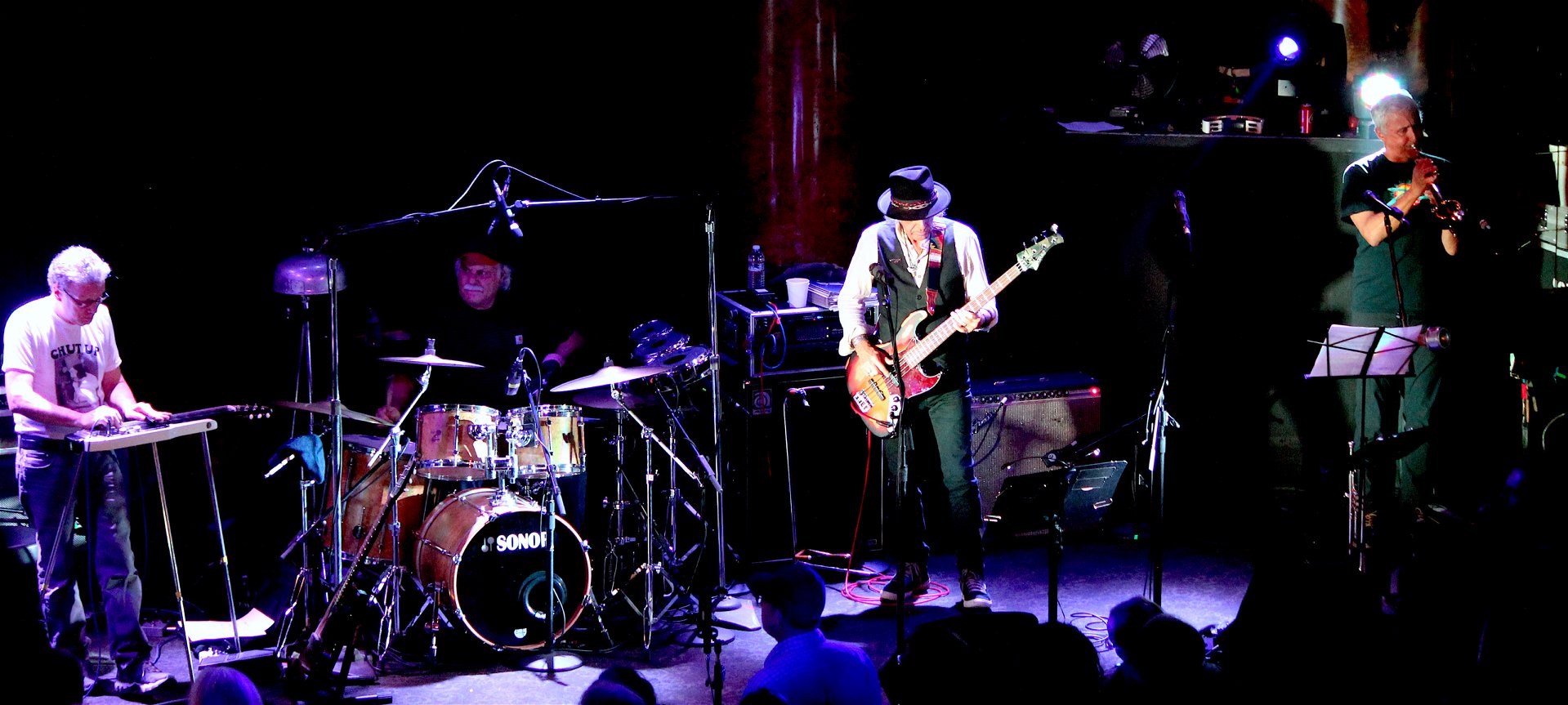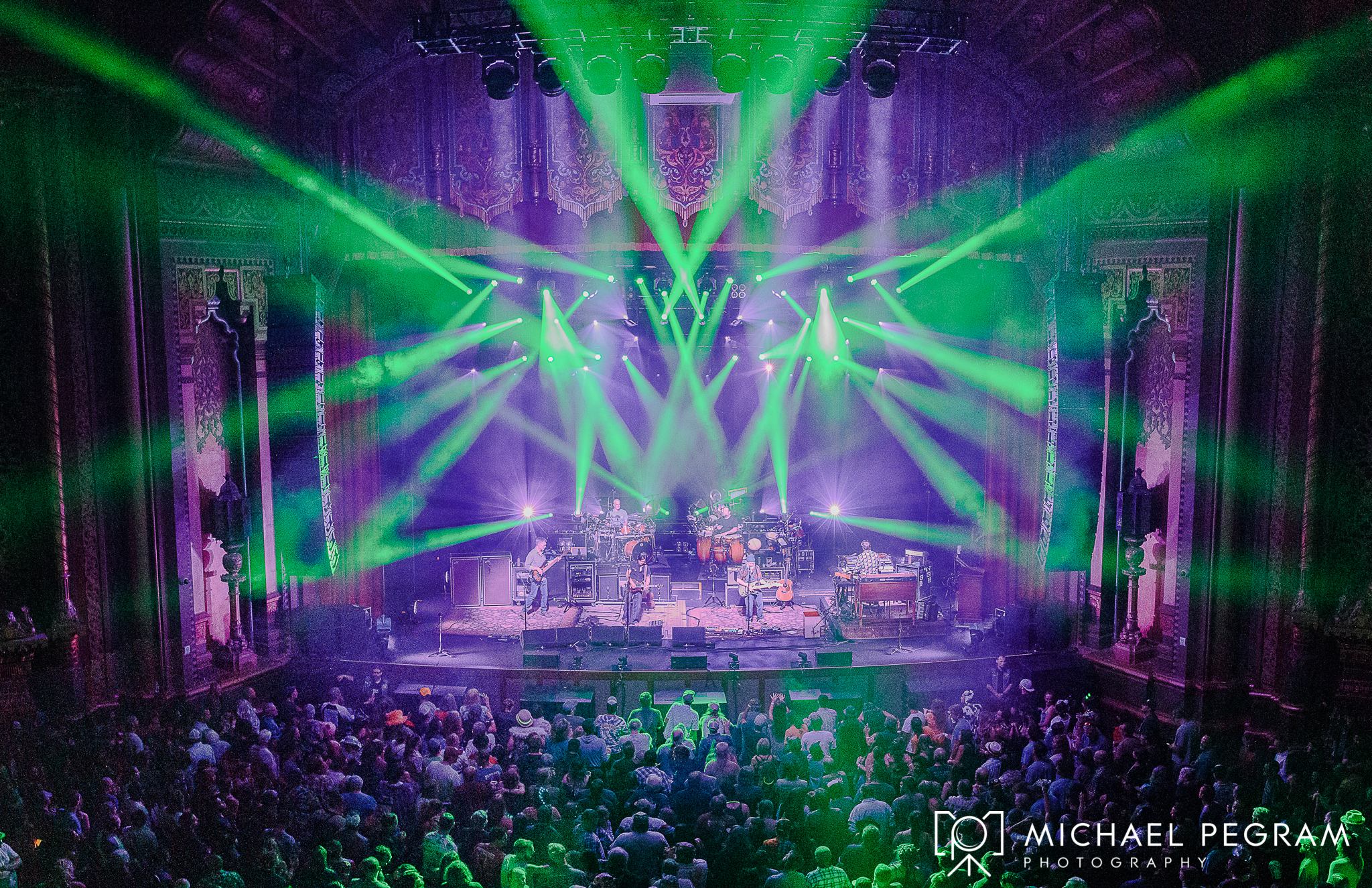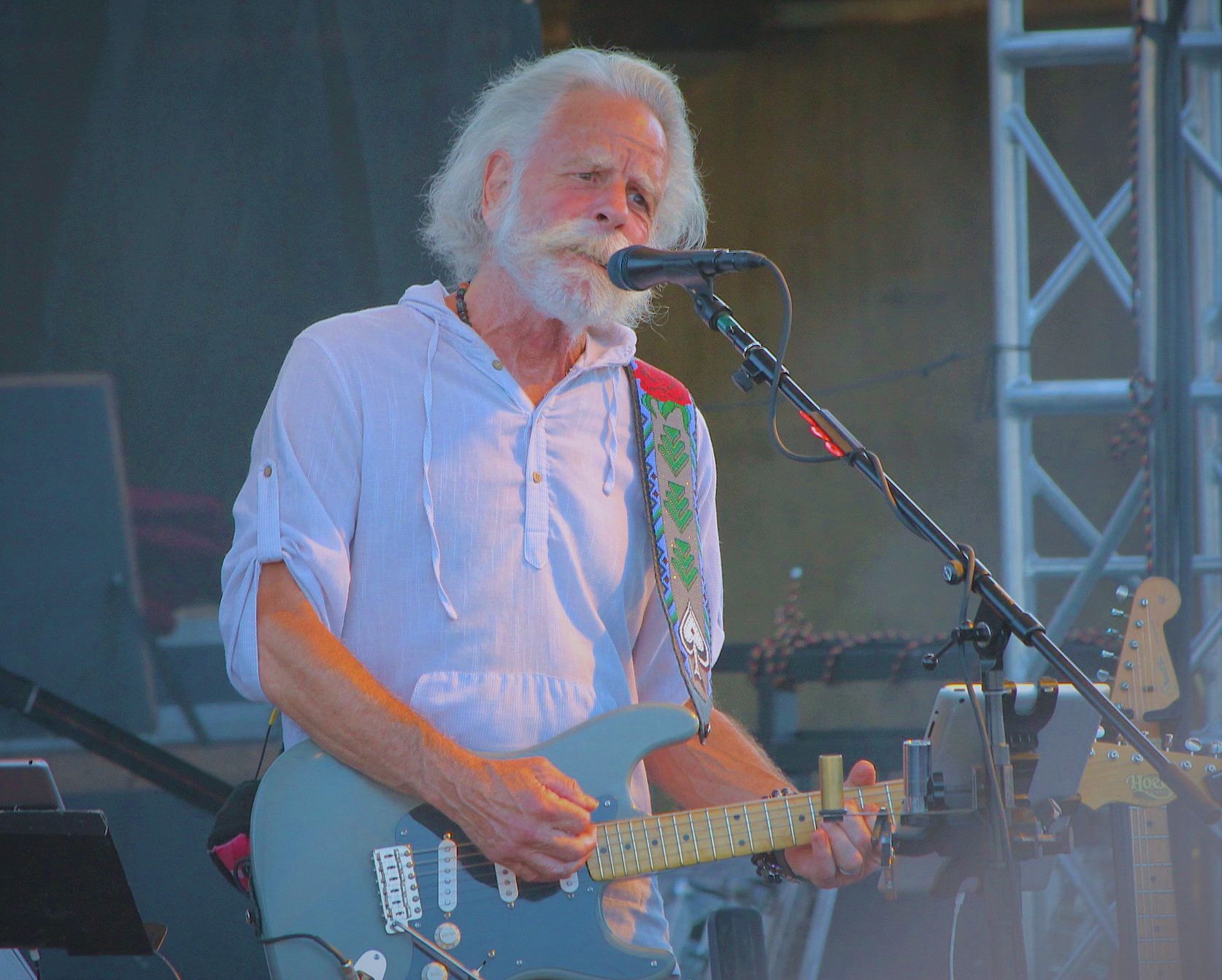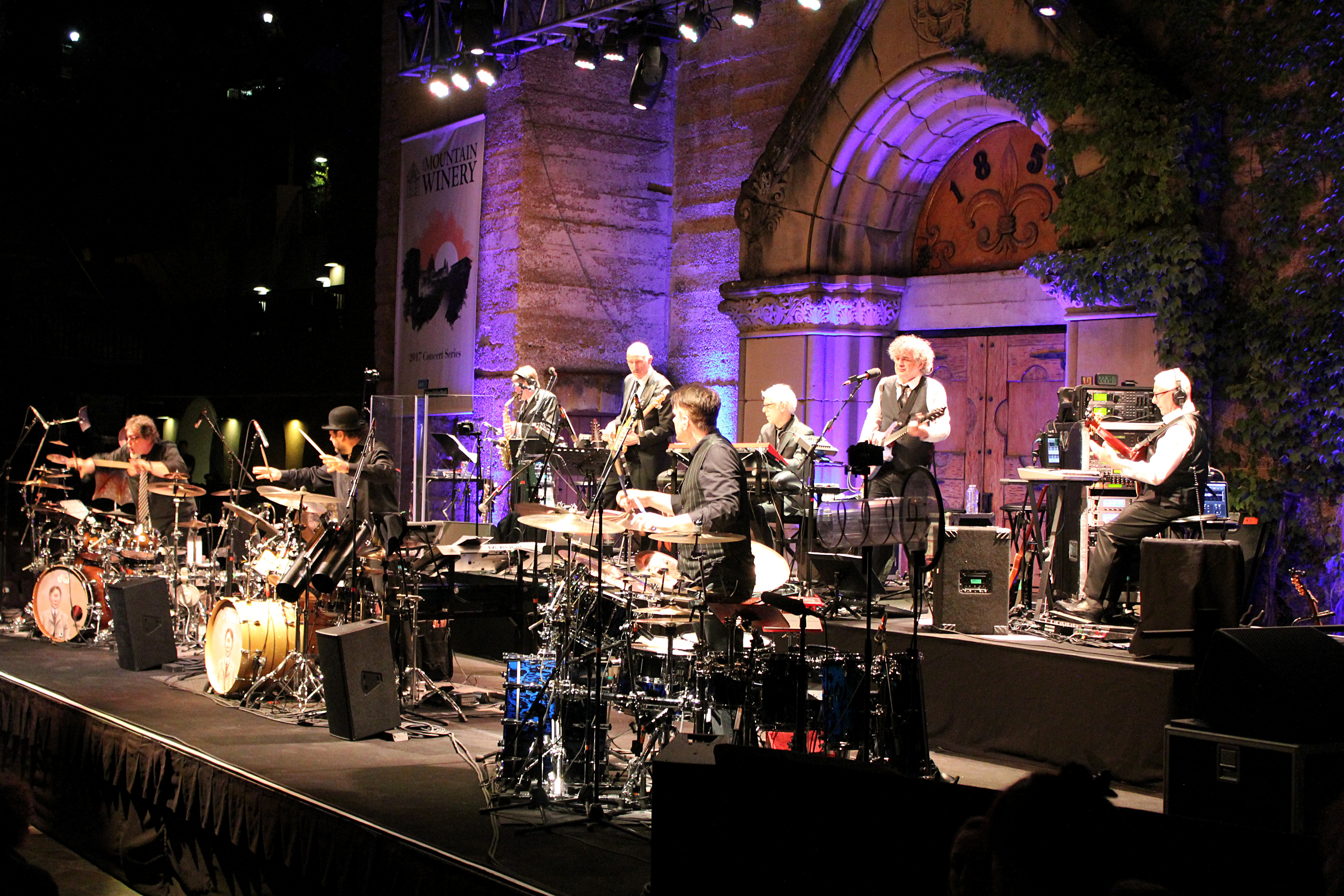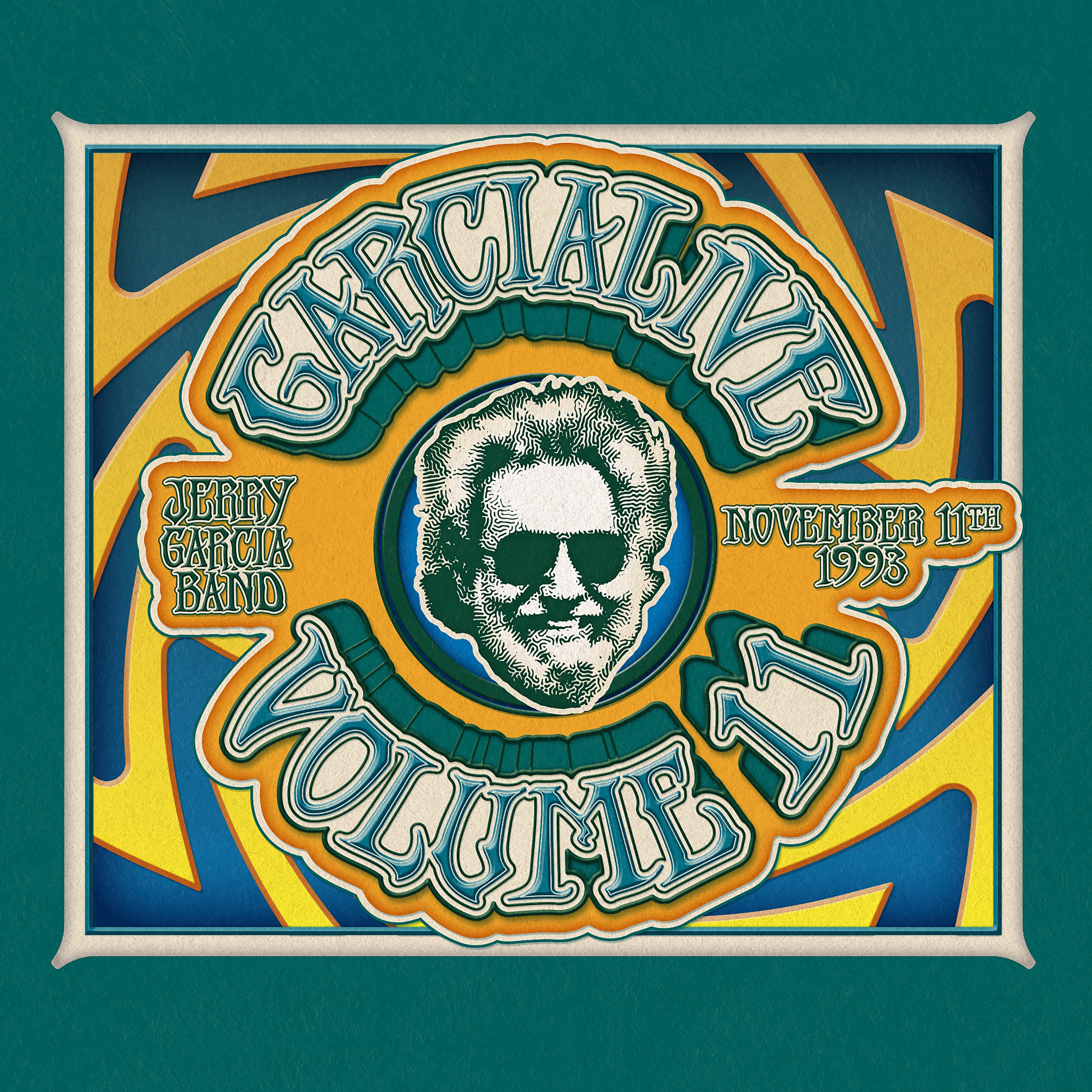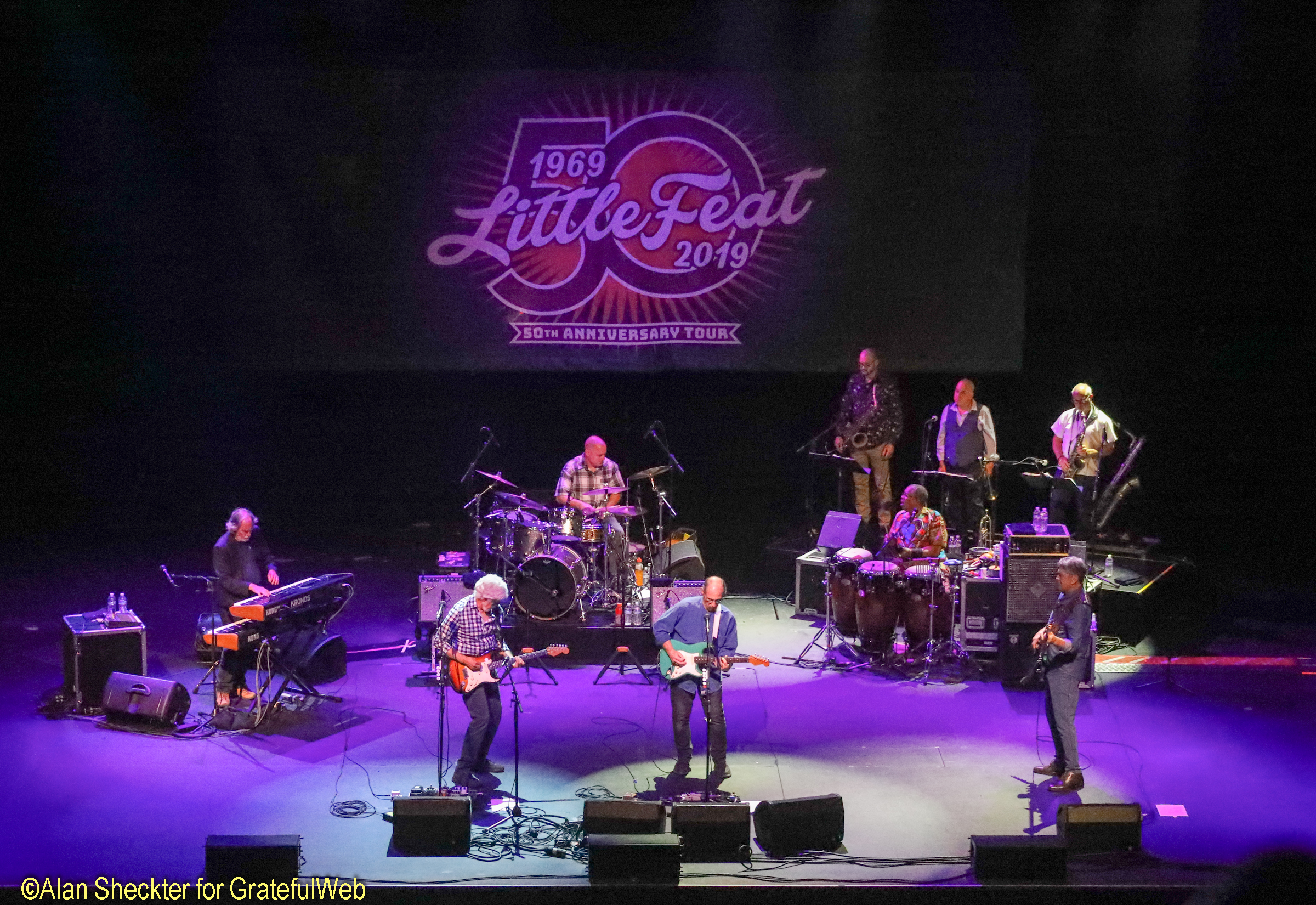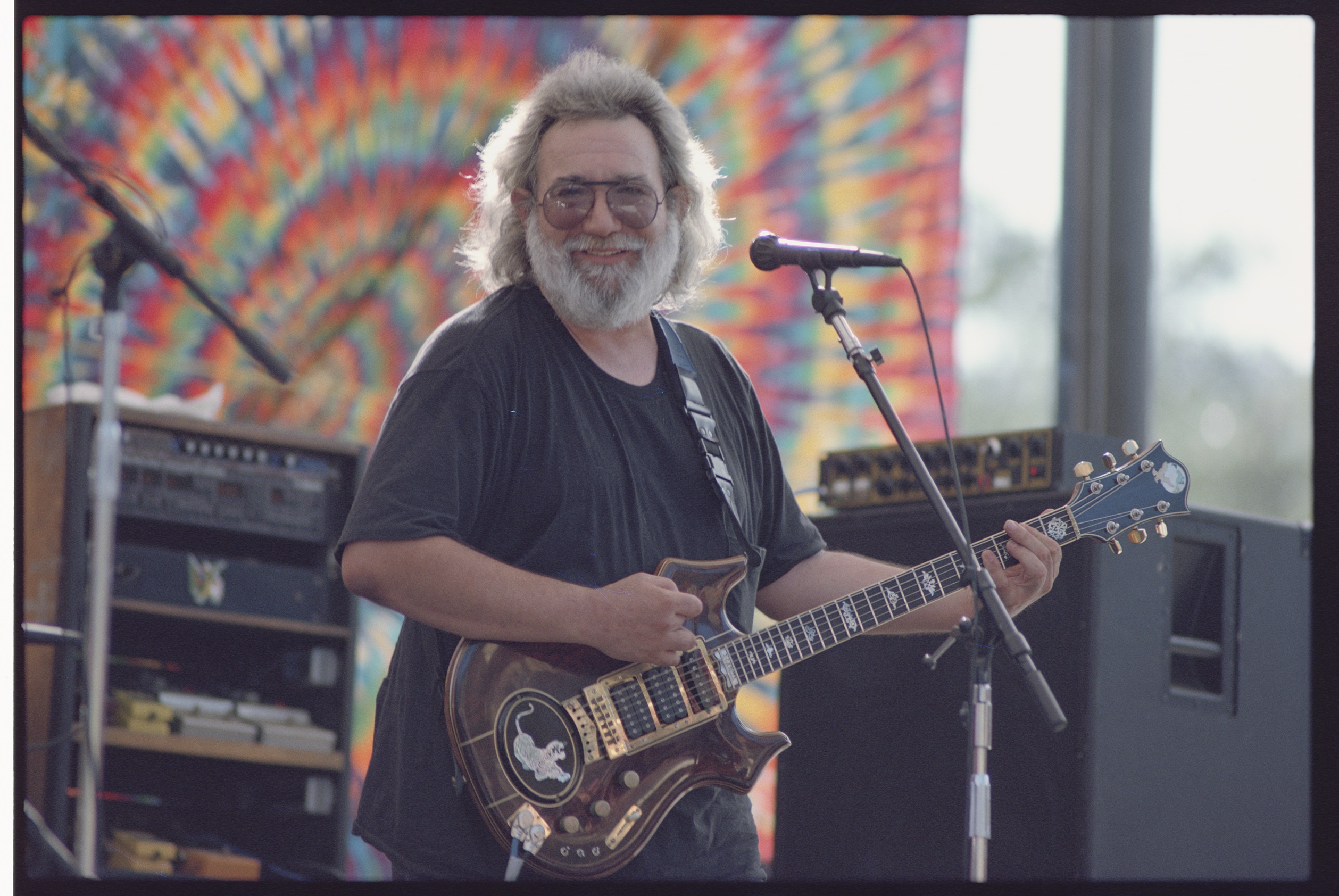Longtime favorite of Grateful Web, Steven Graves plays his own style of rock and soul in venues across the West Coast and Mountain States. He’s a guitarist, vocalist, and bandleader who’s always followed his gut instincts when it comes to bringing together a great song. Without leaning heavily on covers, and humble enough to bring in accomplished bandmates who bring a gigantic spectrum of styles and energy. For Graves, it makes sense to return to the studio each time, as each album is a testament to his life journey until then. Sit back and take in each track off his newest album How Long, a brawnier follow up to last year’s Captain Soul. As it’s always a pleasure to catch up with Steven, who lives in Santa Cruz, California, we were eager to hear about the inspiration behind How Long and his evolving band.
GW: Always a pleasure to catch up Steven. When we’ve spoken past, I’ve gathered that when you go into the studio, it’s always possible for the band to grow. This time, with How Long, you took it to the next level. Let’s talk about the dynamo band that brought this album together. Is this an expansion of your live band?
SG: There are a total of 27 musicians on the CD! I am so blessed to have this community of amazing musicians who are a part of my musical journey. Many of them have been with me since the beginning. There were also some new musicians that came into my world to make this one really special. BJ Cole, who plays pedal steel on “Fly to the Stars,” also played steel on Elton John’s Tiny Dancer, and has played with a very long list of superstars. BJ lives in the UK, and I am honored that he plays on the record. Sasha Dobson, who is originally from the Santa Cruz area but lives in New York now and tours and regularly plays with Norah Jones, also does a nice duet. This CD also features gospel singers Veronica McWoodson and Kellie Anderson, who were a pleasure to work with and knocked it out of the park. Really everyone that recorded on the record made important contributions to making How Long what it is. My touring band is definitely on the record, and it’s been so much fun playing these songs for enthusiastic audiences around the West coast. As an artist, it is always a treat to watch audiences who may never have heard my music plug into it and really get it.
GW: Your lyrics often allude to or speak directly of peace, acceptance, and enlightenment. In these divided times, where do you stand when it comes to protest music or topical songwriting? Do you consider yourself an optimist?
SG: It’s funny, I have been an activist most of my life, working at many levels to make a better world. Mostly it’s been about finding my authentic being in this lifetime and using the creativity and artistry in that to help create positive change within my own being and the world outside of me. There is a purity, honesty, and sincerity that always seems to direct the music as it comes through me. If that wasn’t there, then I don’t think I would do this.
While it’s impossible to ignore the social, spiritual and cultural challenges that we all face daily in this world, my musical intent has always been to be a window into a greater truth about these experiences, a commonality that transcends politics, religion or personal viewpoints. I think that’s what attracts me the most about this music—it cuts through the BS and goes straight to the heart and soul. Simple truths are just that, regardless of ideology or history. The power of music to transform our world is undeniable and cannot be underestimated. From the civil rights breakthroughs created by Chuck Berry and other black artists that shattered the divide between white and black teens to Dylan and the songwriters of the ‘60s and ‘70s who wrote about the turbulent times, they and we all were going through. I feel that it is my job as a songwriter and musician to keep that tradition alive and to continue to be a mirror and observer as to our individual and collective experiences in today’s world.
Most of my songs end up being about love in the end. I think that is one of the most basic premises that defines us as human beings. “Stand for the People” and “People Rise Up” could I guess be branded as protest songs, but for me, they are much bigger than that. “Stand for the People,” serves as the protest songs’ movement that happened around Standing Rock and the Native American communities, on a bigger level. It’s about seeking peace, and sanity in our world and for people uniting together to take control of our own destinies. That’s always been very exciting to me and its grounded in what’s possible. I think it’s a dark time on planet earth and it’s impossible not to feel the weight of that. It feels good to sing and hear these words and the music propels this feeling. I feel like the songs and music are never against anything but are for something, for love, peace, spiritual evolution, sustainability, self-expression.
As far as being an optimist, I am most definitely! I truly believe that we all come into this world with a gift, a calling, and a purpose and that it is our job in this lifetime to live that purpose and in so doing we can be a blessing to our families, children and the world at large. But often times the physical world which I liken as a “spiritual boot camp” appears to be designed to keep us from being and expressing our authentic self and living that purpose, which is a great irony. Sometimes, like the song “Good Day” says, “it’s a good day, when life don’t knock you down” and “it’s a good day when you’re still standing in the final round.” Life on planet earth can be rough, and sometimes it’s all you can do just to show up and still be standing after all that it throws at you!
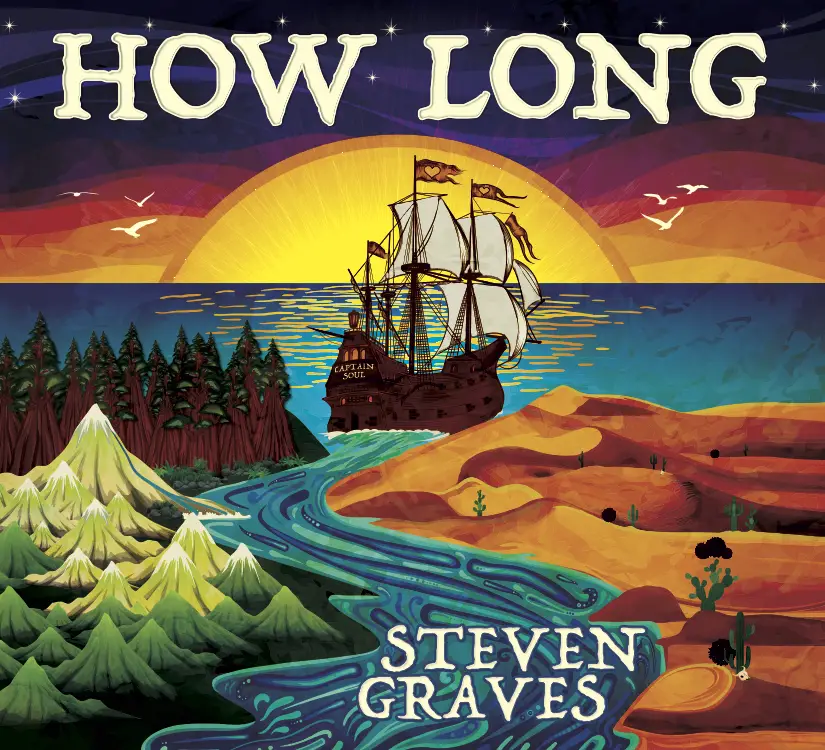
GW: How Long is a testament to how far you’ve come in balancing your live and studio sound. There’s plenty of room for expansiveness in the instrumentals here while you’ve still managed to give each an individual sheen to each song. How has your time playing for crowds developed your approach at studio recordings?
SG: No question that all of the years of touring has impacted my song writing and also my approach to recording. First, we record all of the initial band tracks using analogue gear to retain that warm “fat” sound. We also track the majority of the band live so that we can capture that full band sound and energy. I think that learning to listen in the live band context to the music and to what my band mates are doing and to the overall vibe and energy that we are creating has helped me understand how important space is in the music and that it's all about "the feel" and how it makes you feel. Above and beyond all other factors as I'm creating and writing a new song, it's all about how it makes me feel. If there is any moment in it that doesn't feel authentic or is a struggle, then it doesn't belong. There is such beauty in simplicity. I think this CD perhaps more than any of my others sought to capture that live band energy in the context of well-crafted songs while telling a story that hopefully people can relate to and feel good about! It's kind of like musical feng shui...reduce the clutter, give the music what it wants, a great groove, deep pocket, inspiring lyrics, and an engaging song. It really is all about the music, and I truly feel that every song that is born has a destiny, a form, a sound, and energy that it wants and must be for it to come to fruition. My job is to somehow find that form and bring it to life.
GW: Gotta ask you about “Captain Soul.” Your previous album held the same title, but the track is new to this album. What is the origin of Captain Soul and how does it keep finding its way back to you?
SG: I'm so glad you asked me that! As you so perceptively noted... Captain Soul has definitely taken ahold of my psyche! My last CD was titled Captain Soul, and I think at some level this was or is an alter ego that started to emerge with that record. “Captain Soul” was one of the first three songs I wrote and recorded to start How Long. In a way, every song that came after that was influenced by this mythical character called Captain Soul. For a while, we titled the CD the "Epic Adventures of Captain Soul," since it was like this character was somehow directing the flow and creation of the songs that followed. I joke that he is like my version of Ziggy Stardust! One night I was trying to figure out who Captain Soul was and this is what came out:
CAPTAIN SOUL
Captain Soul is a mythical character, a soul jester if you will, a cross between a pirate and Peter Pan. He sails and flies in his magical ship through cosmic universes and other dimensions. He is connected to and represents the eternal soul of all humanity. At one moment a clown, at another serious, outgoing but introspective. He sees both the tragedy and comedy in the human experience. Having been around since the beginning of time he is unattached to the dramas of our current times, he knows where we’ve been and where we’re going. He travels alone yet we collectively can tap into his journey and his wisdom if we are willing to surrender and listen.
Captain Soul lies deep inside all of us, he is the silent voice or whisper that knows that everything is going to be just fine when all hell is breaking loose. The Captain embodies joy and soaks up life with a passion and zeal, he is all heart. He isn’t here to change anyone or even teach them, he just is, he exists, he travels, he shines his light, he laughs, he witnesses, and he sails on and on inside and outside just like the waves on the beach. He is unafraid to be a fool, and he doesn’t care what anyone thinks. Music, art, beauty, and the abstract flow from his being, love, unbridled love, passion, he is beyond mind and ego, truly transcendent. He exists as a testament to the human soul, timeless, unrelenting and eternal.
What can we learn from Captain Soul? That is for each person to decide. For many he remains inaccessible, they are not ready for the brilliance of the light that he possesses. For others he remains a mystery, and in that mystery lies the magic, the magic of the unknown, the yet discovered, the path that lies before us. For a small group of seekers his magical ship leaves a wake or trail that we can follow with the awareness that we too are already shipmates with Captain Soul, and the joy of an eternal soul lies within us, we can become aware of that and bring that into our lives as a practice and knowing.
CHORUS
Sail Away Captain Soul
On your magic ship with your heart of gold
Sail Away Across the Ocean Blue
Follow the stars until your dreams come true
GW: As an artist who has primarily recorded originals, it’s curious to find a recording of Robert Hunter’s “Sugaree” mixed in. Is this a song you perform live? What drew you to including this?
SG: I have always loved “Sugaree,” and it had been in the back of my mind as a song to add to our live show for some time. Once we started playing it as a band it morphed into its own thing, and while it kept much of the energy that the Dead brought to it, it became our own unique version, and it felt really good to sing. Also in working with my good friend Dennis McNally (the Dead's publicist for many decades), my music has been introduced and very well received in many of the Dead's music circles. Even though we only cover two Dead songs in our live shows, Jerry and the Dead's influence on my writing and sound is undeniable, although I never strive to sound like them or anyone else really.
GW: This music feels nostalgic in an obscure way. You’re not particularly channeling any other artist, but how does nostalgia shape the songs here, if at all?
I like the idea of channeling and do feel that, at some level, it describes my song writing experience even though there is so much thought and intention that must go into making sure each song is "fully realized." I love so many styles of music from old-school country, Motown, Soul, R&B, reggae, classic rock; you name it. I think that good music defies any label or genre— it just is. I think what attracted me so much to all of this music was the authenticity of the artist, the song, and experience of hearing it and how it made me feel. The music as the sound track to our lives is so powerful and true. Any sense of nostalgia in my music relates to this concept. I feel like all of that great music is part of our cultural legacy and it would be an honor if my music somehow adds to that legacy. As all that music seeps out of my musical being in the form of a new song, hopefully, it retains at least some of the magic and power of the music that came before it and builds upon that.
GW: You play in beautiful, intimate venues all around California. Is there a bucket list venue you’d love to play there someday?
Yes, indeed it has been a blessing to play in such incredibly beautiful venues in the Sierras such as Yosemite, Lake Tahoe, Bear Valley, and the Gold Country as well as the deserts of Southern California and Arizona (Sedona and Tucson come to mind) and Oregon. When we travel, we like to take our down time between shows and find magical spots in nature to swim and hang out...which is always inspiring and invigorating. I think as far as a bucket list; I think for me it's more about the audience than the venue. When the audience is fully engaged, and they are going off to the music it is such a rush and synergistic experience...it is truly magical. I guess my "bucket list" would be to perform in a beautiful outdoor venue to 10,000 people or more who are fully "in" the music and dancing their butts off having a great time. I think that would feel really good!





